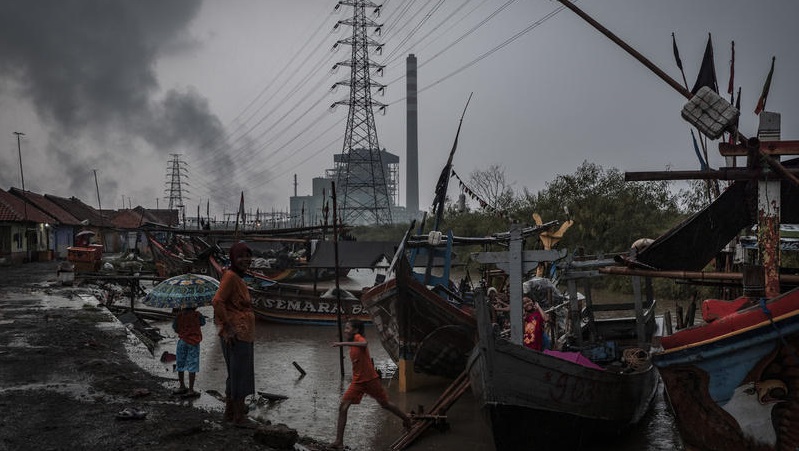As representatives of wealthy governments and foreign banks fly to Jakarta for talks on a foreign-funded Indonesian energy transition deal, details of their $20 billion pledge are being kept deliberately secret.
At the G20 leaders summit on the Indonesian island of Bali in November, a group of governments and banks announced they would give $20 billion to move Indonesia away from the coal that currently generates most of its electricity.
Indonesian investment minister Luhut Pandjaitan said the just energy transition partnership (JETP) was a “groundbreaking model of international cooperation” which would fulfill a promise to his granddaughter to “make policy that would benefit future generations”.
But the governments would not reveal who was paying which part of the $20bn or what form the support would take. One bank said its stated contribution to the figure was only the amount it was “willing to consider”.
Tight lips
A spokesperson for one of the governments told Climate Home they would not reveal how much they were giving because “we agreed among the partner countries that we communicate only our cumulative contribution as a group at this point”.
The Indonesian government has been sworn to secrecy too, according to a source close to it.
“Indonesia is being hostage by [the other governments] not to disclose their funding commitment and the financial modalities,” they said.
Just an estimate
One of the few entities to reveal its contribution is the EU-funded European Investment Bank (EIB), whose commitment is counted as €1bn ($1.06bn).
But a spokesperson told Climate Home that this amount was just what it is “willing to consider committing” and is “subject to agreement on key policy aspects and to a suitable pipeline of eligible investments”.
IMF warns against ‘protectionism’ in rich world’s green subsidies
The only breakdown of the $20bn that that has been publicly revealed is that $10bn will come from the public sector and $10bn will be from private banks that are part of the Glasgow Financial Alliance for Net Zero (Gfanz).
When a similar deal with South Africa was announced at Cop26, only the public money ($8.5bn) was included in the announcement. But subsequent deals with Vietnam and Indonesia have pumped up the headline figure by including private money.
As with Indonesia, the details of this South African deal were kept secret until Climate Home revealed the figures.
Grants vs loans
They showed that only 3% of the funding was grants and the rest are loans, which will add to South Africa’s debt.
The breakdowns of loans versus grants for Indonesia has not been revealed.
But the EU has revealed that just 1% of its $2.5bn, which includes the EIB’s contribution, will be grants.
UN sets date for loss and damage talks, risking Asian no-show
The UK says its $1bn contribution will be a World Bank guarantee.
The US, Japan, Canada, France, Germany, Italy, Denmark and Norway have not announced how much they are contributing or how it will be spent.
Political risk
Despite the lack of transparency, implementation of the financial agreement is now stepping up.
On 16 February, the US and Japanese governments sent officials to Jakarta to commemorate the establishment of a JETP secretariat, hosted by Indonesia’s energy ministry.
A delegation of bankers from Gfanz is expected to visit Indonesia on a scoping mission next week and a full investment plan should be drawn up by September.
South Africa tried to weaken corruption safeguards in coal phase out deal, says CEO
However, the source close to the Indonesian government said the money may come too slowly due to donor country conditions.
Under the deal, the Indonesian government has to implement reforms first, to the satisfaction of these countries. But the reforms are complicated and risky, particularly with a presidential election scheduled for February 2024.
So the risks will be taken before the election while the rewards will only start flowing afterwards, the source said.
